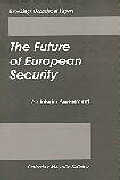The post-cold war security landscape is changing almost daily. Gone is the monolithic threat from a communist bloc led by the Soviet Union. In its place are scores of new concerns: the challenge of system transformation and political and economic reconstruction in central and eastern Europe; the re-emerging threats of ethnic conflict from the former Yugoslavia to the new central Asian republics; and, perhaps most important, the problems associated with the reconstruction of the Russian superpower—including economic and political instability, the threat from the right, the safety of nuclear stockpiles, and the nation’s legitimate security interests as it attempts to regain influence. As these threats change, so must existing European security institutions.
In this book, Catherine Kelleher examines emerging trends in post-cold war European security. She provides an overview of existing security structures and relationships and of the dynamics of changes within them. She offers insightful analysis into the strengths and weaknesses of the these structures, as well as the challenges to closer cooperation.
Kelleher details recent events in Europe’s most important security institutions—NATO, the Conference on Security and Cooperation in Europe (CSCE), and the Western European Union (WEU)—with special emphasis on new programs being designed to fit the changing landscape, programs like the Partnership for Peace, the Eurocorps, and the Combined/Joint Task Forces. She examines how they have responded to events in central and eastern Europe—from economic and security outreach efforts toward the emerging democracies to the response of these institutions to the Gulf and Yugoslav crises.
Kelleher concludes with policy prescriptions that will make a significant contribution to the ongoing debate about the future of European security—where it is going and the best way to get there—and America’s central role in that future.
Author
Cathering McArdle Kelleher was a senior fellow in the Foreign Policy Studies program at the Brookings Institution.

